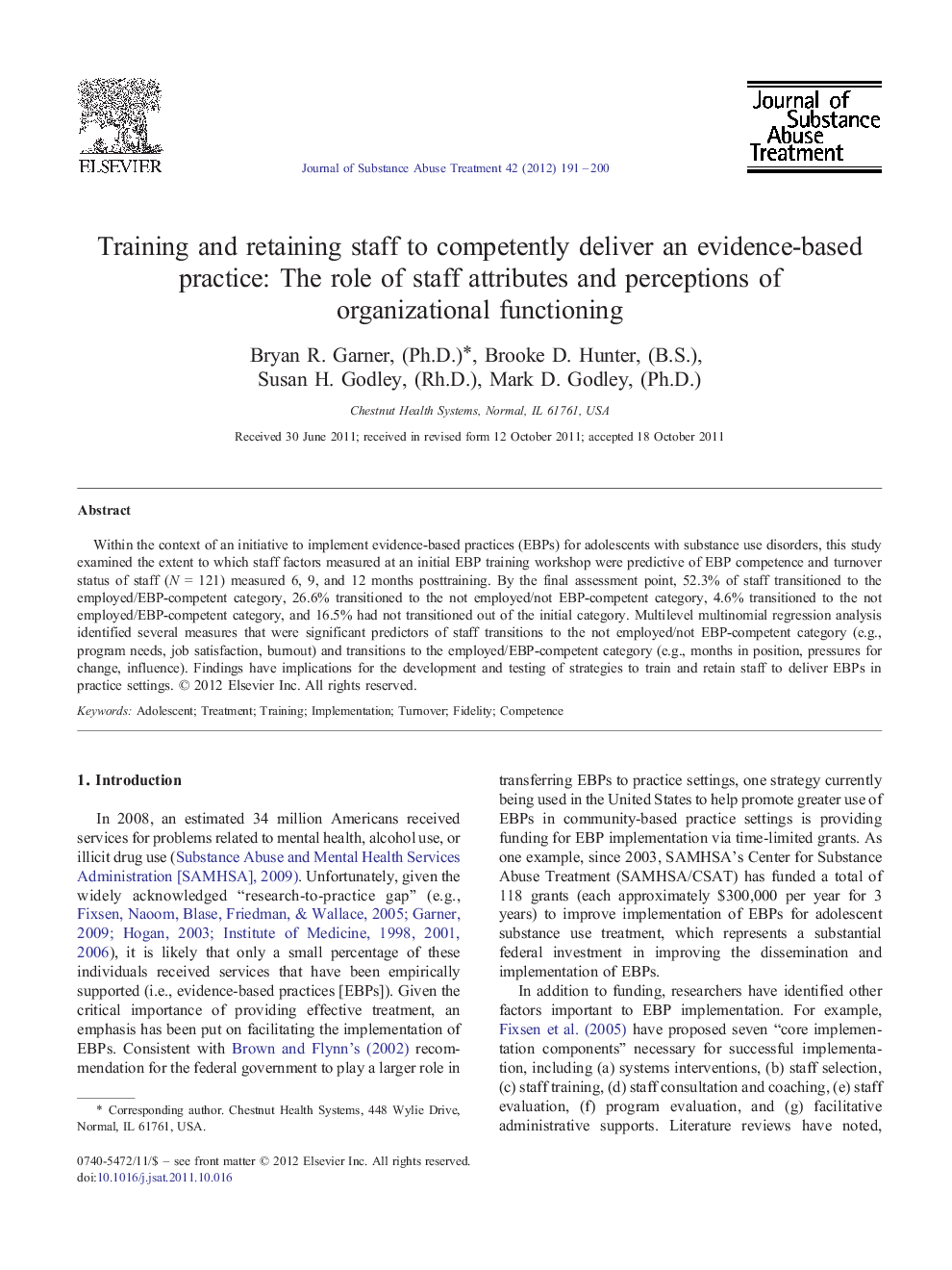| Article ID | Journal | Published Year | Pages | File Type |
|---|---|---|---|---|
| 328513 | Journal of Substance Abuse Treatment | 2012 | 10 Pages |
Within the context of an initiative to implement evidence-based practices (EBPs) for adolescents with substance use disorders, this study examined the extent to which staff factors measured at an initial EBP training workshop were predictive of EBP competence and turnover status of staff (N = 121) measured 6, 9, and 12 months posttraining. By the final assessment point, 52.3% of staff transitioned to the employed/EBP-competent category, 26.6% transitioned to the not employed/not EBP-competent category, 4.6% transitioned to the not employed/EBP-competent category, and 16.5% had not transitioned out of the initial category. Multilevel multinomial regression analysis identified several measures that were significant predictors of staff transitions to the not employed/not EBP-competent category (e.g., program needs, job satisfaction, burnout) and transitions to the employed/EBP-competent category (e.g., months in position, pressures for change, influence). Findings have implications for the development and testing of strategies to train and retain staff to deliver EBPs in practice settings.
